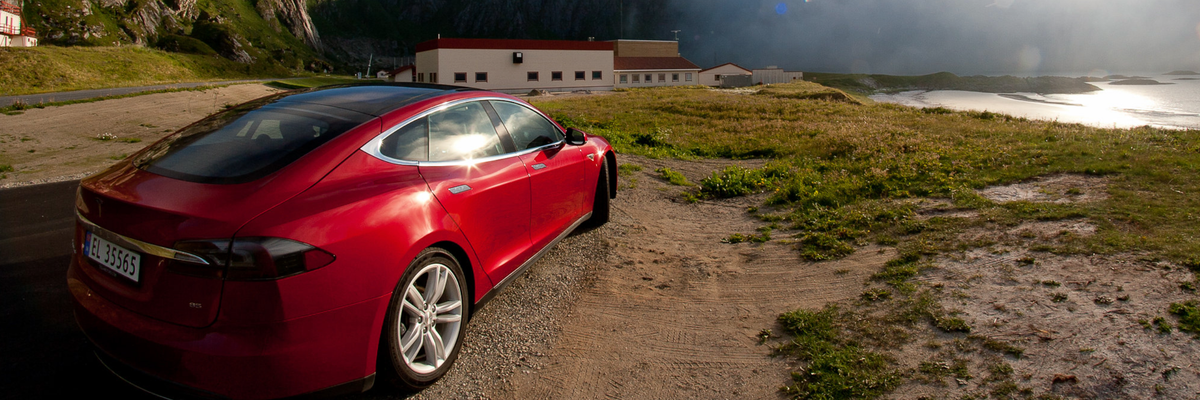In what's believed to be a global milestone, electric vehicles now outnumber gasoline-fueled automobiles on Norway's roads, as the overwhelming bulk of new cars sold in recent months have been battery-powered.
Norway's Road Information Council (OFV)
said Tuesday that electric vehicles (EVs) made up 754,303, or 26.6%, of the 2.8 million passenger automobiles registered in the Nordic nation. That's slightly more than the 753,905 registered gasoline-powered vehicles, but far fewer than the 999,715 diesel-burning ones.
Last month, a record 94.3% of all new vehicles sold in Norway were EVs, with Tesla's Model Y as the top seller.
"This is historic. A milestone few saw coming 10 years ago,"
said OFV director Øyvind Solberg Thorsen. "The electrification of the passenger car fleet is keeping a high pace, and Norway is making rapid strides towards becoming the first country in the world with a passenger car fleet dominated by electric cars."
"But it will take some time before we get there, because there are still 1 million registered passenger cars with diesel engines in the country," Thorsen noted. "The pace we are seeing in the replacement of the passenger car fleet now may indicate that in 2026 we will also have more electric cars than diesel cars."
According to OFV, there could be as many as 3.1 million EVs registered in Norway by the end of the decade.
"The rate of change in the passenger car units is difficult to predict," Thorsen cautioned. "Economic fluctuations in relation to car taxes, prices, interest rates, and other factors affect new car sales—both for private individuals and companies. And tax changes have a big impact on which cars we choose."
Norway—which is ironically Europe's second-largest oil producer—incentivizes EV purchases with generous tax rebates.
In stark contrast with Norway, electric car sales have been lagging in most of the rest of Europe, where EVs make up just 12.3% of new cars sold,
according to The Guardian.
Experts
say that in order for countries to fulfill their obligations under the Paris climate agreement, zero-emission vehicles—which include EVs and hydrogen-powered automobiles—must account for around 40% of the global car and light truck fleet by 2030.
Researchers at the Massachusetts Institute of Technology's Joint Program on the Science and Policy of Global Change and MIT Energy Initiative forecast in 2021 that the global EV fleet will grow from just over 10 million to 95-105 million by 2030, and 585-823 million by 2050.




